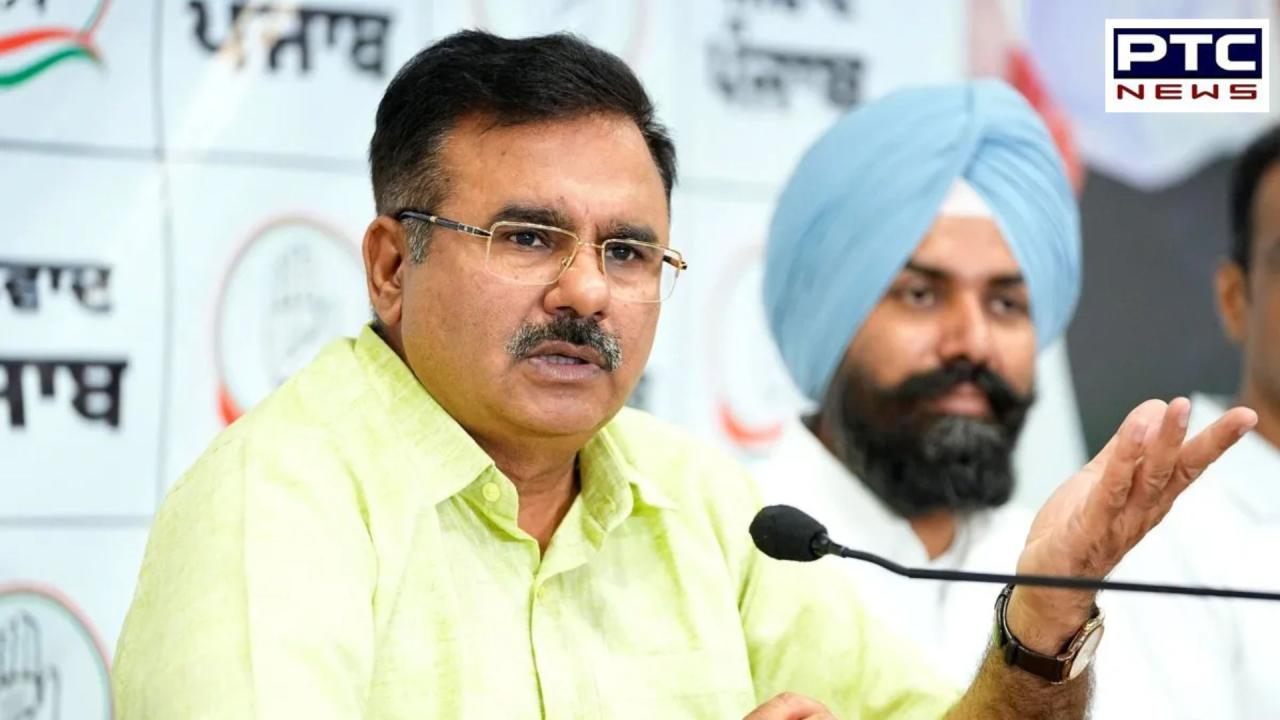

Congress spokesperson Alok Sharma faces backlash over controversial remark about Marathi people
PTC News Desk: Maharashtra is currently at the center of a heated controversy after Congress spokesperson Alok Sharma made a derogatory remark about the Marathi community. During a televised debate on Aajtak, Sharma made a controversial statement that has been widely condemned.
While discussing the Badlapur sex abuse case, he questioned whether the Bharatiya Janata Party (BJP) would protect "Marathi manoos (people)" involved in such crimes, asking, "मराठी माणूस बदलापुर में रेप करेगा तोह उसको भी आप बचाएंगे क्या?" ("If a Marathi person committed rape in Badlapur, would you still protect him?").
मराठी माणसाचा बलात्कारी असा उल्लेख करून काँग्रेस पक्षाचे प्रवक्ते आलोक शर्मा यांनी तमाम मराठी माणसांचा आणि महाराष्ट्राचा अपमान केला आहे. याच वक्तव्याचा निषेध नोंदवत शिवसेनेचे सोशल मीडिया राज्यप्रमुख आणि युवासेनेचे सरचिटणीस मा.श्री. राहुल कनाल यांनी मुंबई पोलिसांकडे केलेल्या… pic.twitter.com/PsTrE2tLTP — Shivsena - शिवसेना (@Shivsenaofc) August 23, 2024
Sharma's remark has sparked a wave of outrage across Maharashtra, with thousands taking to social media and putting up posters to condemn his statement. Many people from different walks of life, including Marathi cultural enthusiasts, history buffs, and social media users, have expressed their anger.
Political parties like the BJP and Shiv Sena have also strongly criticized Sharma's remarks. Union Minister Piyush Goyal has demanded that Congress leader Rahul Gandhi provide a clarification on the matter.
In response to the remarks, the Shiv Sena has filed a police complaint against Sharma, accusing him of insulting the Marathi community and demanding his immediate dismissal from the Congress party. A case has been registered against Sharma, and there is significant anger among Marathi speakers worldwide regarding his statement.
The controversy has also led to a flood of social media posts condemning Sharma, and posters denouncing him have appeared in various locations. The BJP and Shiv Sena have reiterated their condemnation, with Union Minister Piyush Goyal pressing for an official response from the Congress leadership. The Shiv Sena's police complaint highlights their belief that Sharma's comments not only insulted the Marathi community but also promoted harmful stereotypes.
The backlash against Sharma's statement has crossed party lines and spread throughout Maharashtra, reflecting a widespread condemnation. Many believe that a person who commits a crime such as rape should not be associated with any particular community, language, religion, or caste but should be seen solely as a criminal. By linking such a heinous act with the Marathi community, Sharma has committed what many see as a grave offense.
Maharashtra has a rich tradition of respecting women, rooted in its history. Chhatrapati Shivaji Maharaj, the revered Maratha ruler, was known for his strong stance on protecting women's honor. The state has also been home to notable figures like Pandita Ramabai, Dr. Anandibai Gopalrao Joshi, and Savitribai Phule, who were pioneers in women’s education and empowerment.
Maharashtra was the birthplace of India’s first school for girls, and Marathi women have excelled in various fields, including education, science, and the arts. Given this proud heritage, Sharma’s remark has deeply offended many and is seen as an affront to the state's long-standing values of respect and equality for women.
Also Read: Supreme Court grants bail to BRS leader K Kavitha in Delhi liquor policy case
The Congress party has been accused of harboring a historical disdain for the Marathi people and the state of Maharashtra since India’s independence. This sentiment is seen as part of a broader pattern of undermining Marathi aspirations and leadership. Critics point to the party's opposition to the formation of a united Maharashtra and its efforts to marginalize prominent Marathi leaders like Dr. Babasaheb Ambedkar. Many believe that the Congress has systematically prevented Marathi individuals from rising to significant positions at the national level and has denied Maharashtra its due recognition and resources.
Critics also accuse the Congress of unfairly annexing Marathi-speaking regions such as Belgaum, Bidar, Bhalki, Karwar, Nipani, and Khanapur to Karnataka during the linguistic reorganization of states. Marathi speakers in these border areas have long felt marginalized, believing their demands for inclusion in Maharashtra have been ignored. This perceived historical injustice adds to the broader narrative of neglect and discrimination against Marathi-speaking regions.
Additionally, there has been a notable absence of Marathi leaders in the Congress party's upper ranks. Since independence, the party has never appointed a Marathi individual as its president, and there is a perception that it has consistently worked to weaken influential Marathi leaders. This exclusion has led to a widespread belief that the Congress has continually undermined the aspirations of Marathi people.
The controversy has also raised questions about the silence of key figures such as former Chief Minister Uddhav Thackeray and Sanjay Raut, both of whom have positioned themselves as protectors of Marathi pride. Uddhav Thackeray, the son of Balasaheb Thackeray—who was known for his strong defense of Marathi interests—has not publicly responded to Sharma's remarks. Many believe that if Balasaheb were alive, he would have vehemently opposed any insult to the Marathi language, Maharashtra, or Marathi speakers.
Furthermore, other prominent Maharashtra Congress leaders, including Sharad Pawar, Supriya Sule, Rohit Pawar, and Jitendra Awhad, have also remained silent, raising questions about their stance on the issue.
Also Read: Chhatra Samaj, the student group behind the ‘nabanna abhijan rally in Kolkata: Explained
- With inputs from agencies
